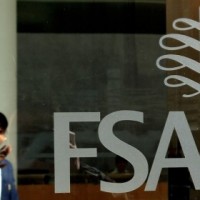
It is concerned that firms may bypass the adviser charging rules by soliciting or providing payments or benefits.
The regulator said its supervisory work had alerted it to moves in the market which “could undermine the RDR adviser charging provisions and also unfairly disadvantage those advisers who are working hard to treat their customers fairly and prepare for the upcoming changes”.
“This might mean that advisers continue to provide ‘biased’ advice to consumers (when recommending a product provider) and also make some firms’ adviser charges look lower than others simply because of the deals and arrangements they have in place with providers,” it said.
“Money from these arrangements would effectively cross-subsidise the cost of advice and could cause firms to recommend certain providers and products over others.”
The FSA added it would take “robust action” where it sees evidence of the rules being circumvented, although it was not seeking a blanket ban on arrangements between providers and advisers.
Today’s letter was sent to a sample of the largest providers of retail investment products, as well as the largest distributors, and asked them to confirm that any agreements in place, or being negotiated, are compliant with the prospective adviser charging rules.
As well as the size of the payments in these “distribution agreements”, the FSA highlighted another concern over some benefits included in them, including contributions towards IT systems.
While some lengthy agreements have been arranged ahead of RDR implementation at the end of the year, the FSA pointed out that some of these benefits may be used after 31 December.
In this case, it said, the benefits may need to be treated as if made after 31 December, and so be caught by the adviser charging rules.
Read more
















